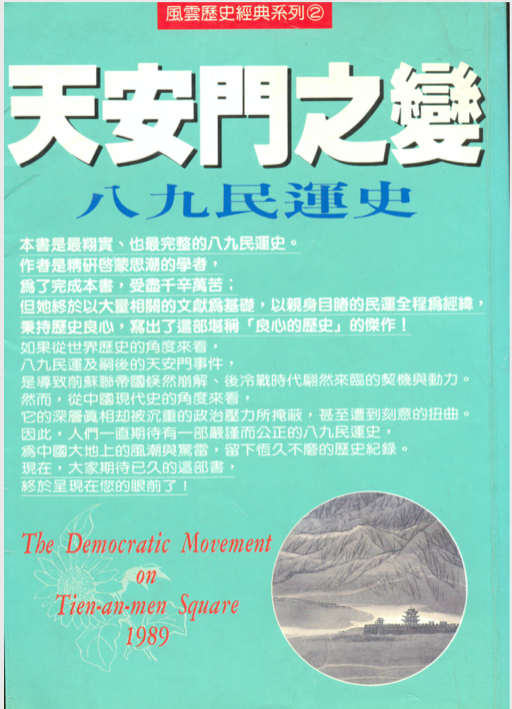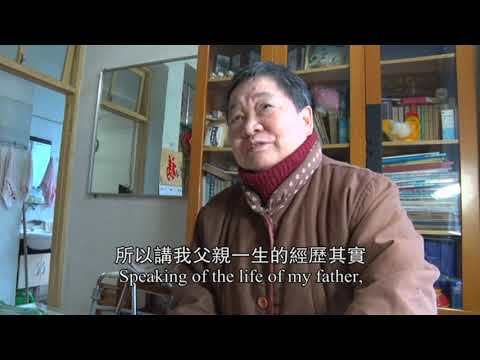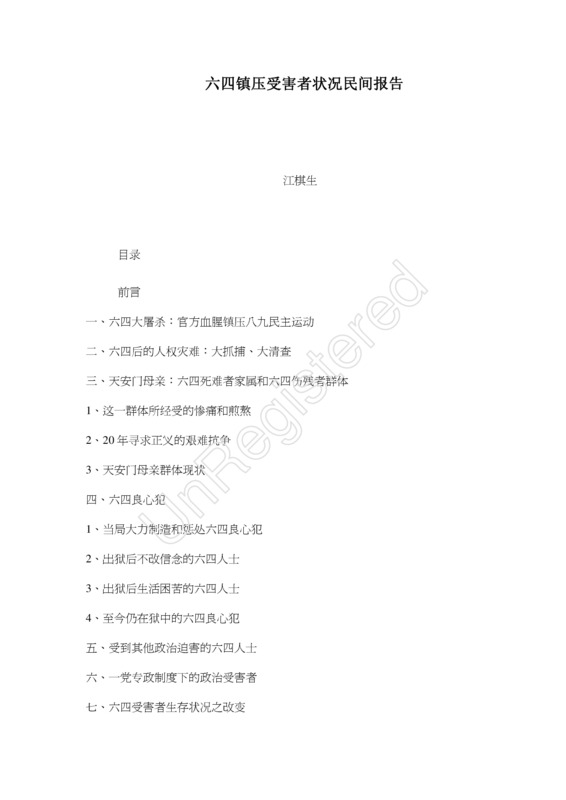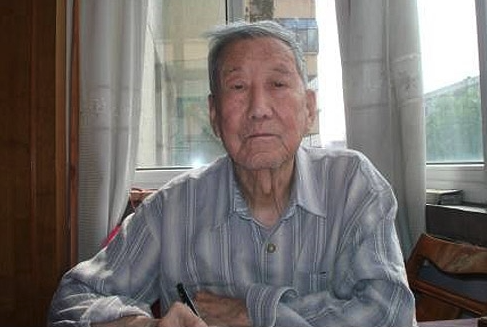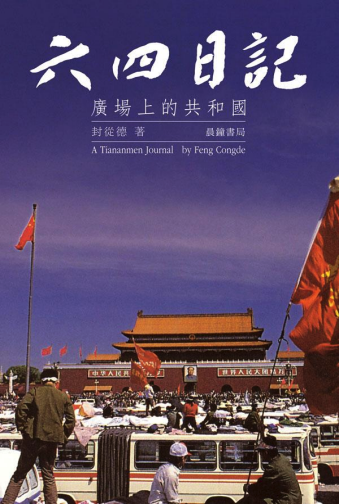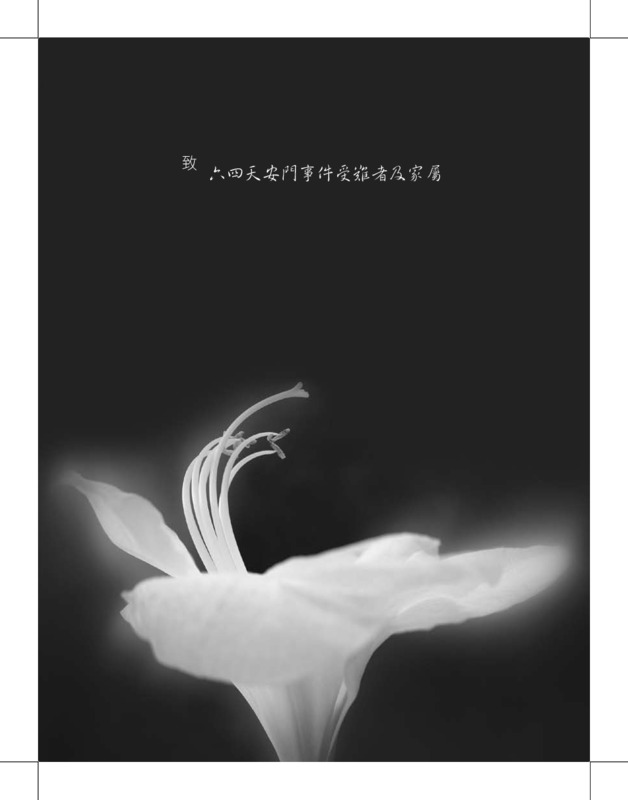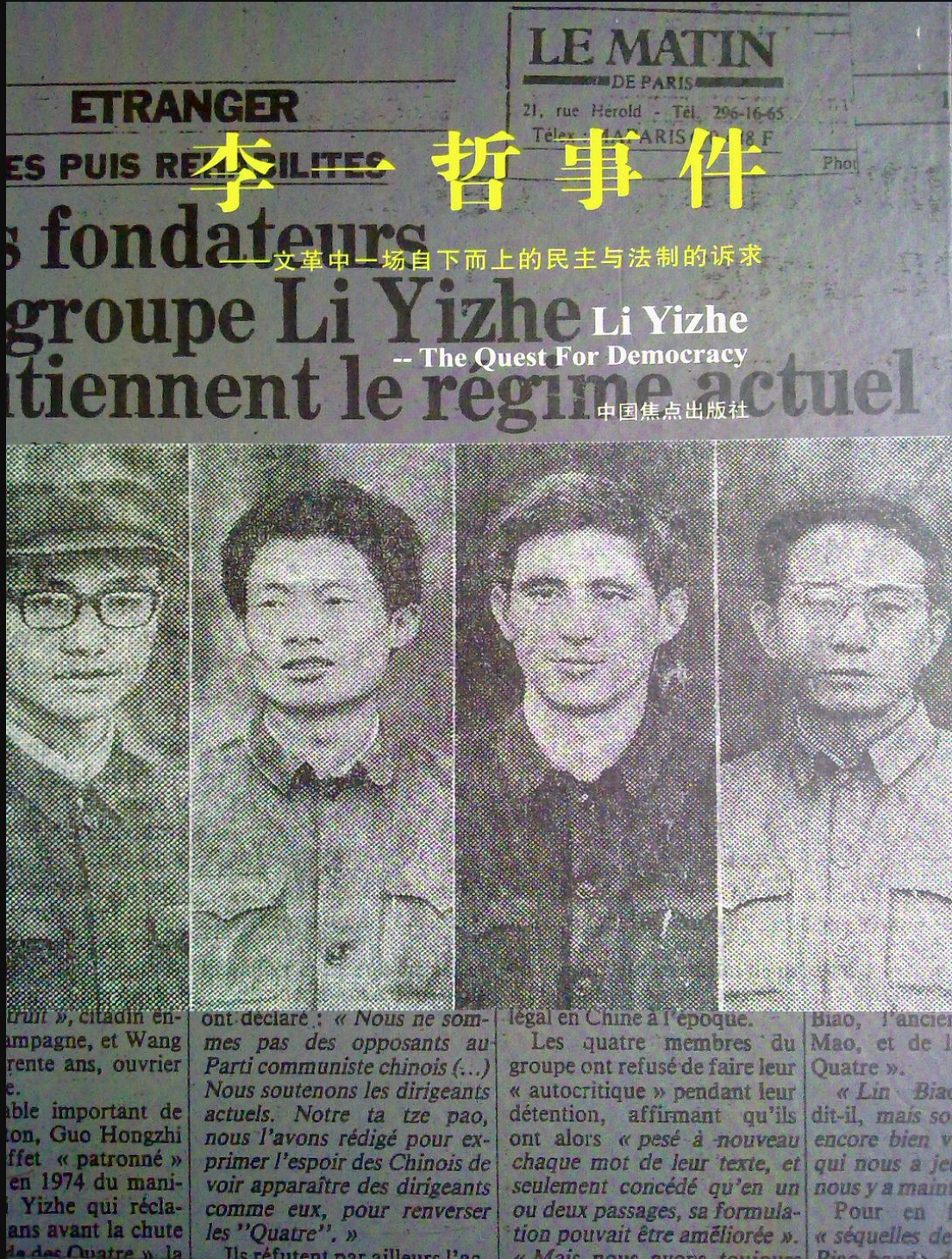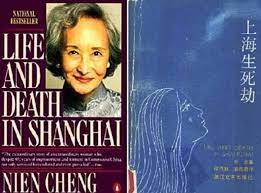Explore the collection
Showing 89 items in the collection
89 items
Book
Great Power Sinking: A Memo to China, A
This book is a collection of political essays by Nobel Peace Prize winner Liu Xiaobo. It is a sister volume to *Single-Edged Poisoned Sword - A Critique of Contemporary Nationalism in China*, which covers many aspects of Chinese politics, including: one-party dictatorship, powerful capitalism, rights defense, June Fourth, and nationalism.
Book
Gu Zhun and His Times
This book is about Gu Zhun, a Chinese economist, historian and philosopher. Gu Zhun was the first person to put forward the theory of China's socialist market economy, which became a key concept in the Reform era, helping to justify the use of markets in a socialist system. He also devoted himself to the study of politics, history and philosophy, translating several foreign classic works on economics and democracy and writing a large number of articles. Due to his independent thinking and dissent, he suffered repeated political persecution, including during the Anti-Rightist Campaign and the Cultural Revolution (for more information on Gu Zhun, see his biographical entry). As he personally experienced the Anti-Rightist Campaign, the Great Famine, and the Cultural Revolution, his diary is also considered a valuable source of information on these historical events. By documenting and analyzing his life, thoughts, and the eras in which he lived, Wang's book shows how Gu Zhun persisted in his "pursuit and search for the freedom and equal rights that are inherent to all human beings " (author's preface) in an era when independent thinking was suppressed. This book was published in 2015 by the Great Mountain Culture Publishing House in Hong Kong.
Book
Gu Zhun Diary
This book contains the only three surviving diaries of Gu Zhun: one from October 1959 to January 1960 when he was exile to work in a labor camp in Shangcheng, Henan Province, one from October 1969 to September 1971 when he was sent to work in the May Seventh Cadre School in Xi County, Henan Province, and one from October 1972 to October 1974 when he returned to Beijing. The first two diaries, written during the Great Famine and the Cultural Revolution, record the tragedies Gu Zhun witnessed during the Great Famine as well as his own endurance of hunger, and how he underwent repeated punishment and ideological education as a Rightist. The third diary is a simple record of his life, but it shows that Gu Zhun spent the last two years of his life almost exclusively in reading, translating and writing. Since he personally experienced the Anti-Rightist Campaign, the Great Famine, and the Cultural Revolution, these three diaries are considered a valuable source of information about these historical events. In addition to Gu Zhun's diary, the book includes Gu Zhun's translation manuscript of a chapter on Christianity in English political scientist George Catlin’s book *A History of Political Philosophers* published in 1939. The book also includes his last letter to his sixth brother Chen Minzhi, several articles by other people commemorating Gu Zhun, and interviews with Gu Zhun's close friends. The book was published by the Economic Daily Press in 1997.
Book
History of the 1989 Democracy Movement
This 10-volume book of 1.3 million words was written by Chen Xiaoya, a former associate researcher at the Institute of Political Science of the Chinese Academy of Social Sciences. The first edition was written in April 1994 and published in Taiwan in 1996, but with just over 200,000 words. Later, Chen Xiaoya revised the book several times to increase its content: starting from 1976, the year of Mao Zedong's death, and covering Hu Yaobang's political career as well as the background of the June Fourth Incident and also adding the contents of the memoirs of the parties involved in the June Fourth Incident. The number of words was increased to 1,360,000 words in 2016 when the book was published. The book was reprinted in 2019.
Purchase link:https://www.amazon.com/%E3%80%8A%E5%85%AB%E4%B9%9D%E6%B0%91%E9%81%8B%E5%8F%B2%E3%80%8B%E3%80%8A%E5%85%AB%E4%B9%9D%E6%B0%91%E8%BF%90%E5%8F%B2%E3%80%8B-%E7%AC%AC%E5%85%AB%E5%8D%B7-DEMOCRACY-MOVEMENT-Traditional-ebook/dp/B07VN848V8
Book
History of the Chinese Thought Movement
This book is a masterpiece by Chinese scholar Li Honglin. The author was a representative of the ideological liberation movement during reform and opening up and was arrested after the Tiananmen Square incident in 1989. This book summarizes the various ideological purges launched by the CCP since its establishment in 1949.
Book
Holy Virgin on the Altar - A Biography of Lin Zhao, The
This book is a biography of Lin Zhao written by mainland writer Zhao Rui and published by Taiwan's Xiuwei Information Publishing House in 2008. The book describes Lin Zhao's life and family background in detail. The "Appendix" contains the recollections of several people involved.Purchase link: https://www.books.com.tw/products/0010431680.
Book
Hu Yaobang and the Vindication of Wrongful Convictions.
This book recounts Hu Yaobang's efforts to overturn people falsely accused of being "Rightists" during the Anti-Rightist Campaign of the 1950s. It is written by Dai Huang (1928-2016, formerly known as Dai Shulin), a Communist propagandist and later senior editor at the Xinhua News Agency, who was also persecuted in the Mao era and rehabilitated thanks to Hu's efforts.
This means that the book is not entirely objective–Dai does not analyze too closely Hu's history of slavishy following Mao's policies. Instead, he aims to capture the excitement felt by the hundreds of thousands who suffered in the Mao era and who were rehabilitated in the 1970s and '80s thanks to Hu. At 300,000 Chinese characters, or more than 200,000 English words, it is a weighty compendium that includes previously unreported details of famous public intellectuals and party members persecuted by the party and how Hu rehabilitated them. For example, Dai recounts the case of Ge Peiqi, who was a Communist Party spy who was toppled for his opposition to the party's corruption and privilege. Dai explains the case in depth and how Ge was eventually cleared.
Dai represented a liberal wing of the party that believed in the need for the party to address its mistakes. At his funeral people such as Du Daozheng (the editor of China Through the Ages 炎黄春秋) and Tie Liu (publisher of the alternative history journal 往事微痕) attended. The book also contains a preface by Li Rui, who participated in China Through the Ages and was also a mainstay of the party's liberal wing.
电影及视频
In Search of Lin Zhao's Soul
Hu Jie narrates the life of Lin Zhao, a Christian dissident who was condemned as a Rightist in the late 1950s and executed during the Cultural Revolution. Prior to becoming a mentcritic of the government, Lin Zhao was an ardent believer of communism. She demonstrated talent in writing and speaking as a star student in Peking University. However, after criticizing the government in 1957 during the Hundred Flowers Campaign, she was cast as anti-revolutionary. Despite the government’s attempts to silence her, Lin Zhao continued to speak and write publicly, including contributing two epic poems to Spark, an underground student-run journal. In 1960, she was arrested, and despite being released briefly in 1962, spent the rest of her life behind bars, under extremely poor living conditions. Nevertheless, she continued to write in prison, sometimes with her blood. In 1968, at the age of 36, she was executed by a firing squad.
In this documentary, Hu Jie showcases many of Lin Zhao’s surviving writings and poetry. These pieces often contain criticisms of the communist regime, as well as commentary on policy issues pertaining to labor and land reform. In making this film, Hu Jie traveled around China to interview friends and associates of Lin Zhao, who knew her as a student, activist, or prisoner. This documentary includes excerpts from interviews with them, which inform us about Lin Zhao’s personality and motivations.
This documentary has contributed to a widespread revival of interest in Lin Zhao, who had almost become a forgotten figure until the film’s appearance.
Book
In Search of My Homeland
“In Search of My Homeland” is a collection of essays in three volumes written by Gao Ertai during his exile abroad. In this book, Gao looks back on his life. From his hometown of Gaochun, a small town in Jiangsu Province, to Suzhou, then to Lanzhou, Jiuquan, Dunhuang, Beijing, Chengdu, and the United States, Gao has undergone tremendous suffering, lost his home and family, and finally had to go into exile in a foreign country. Even though the work is widely regarded as having great literary merit, Gao uses real names and places, which makes the work a valuable historical document, especially for describing the Great Famine, and the brutal suppression of intellectual life during the Cultural Revolution at the Dunhuang research academy, which is one of China's most prestigious cultural institutions.
In an [interview](https://web.archive.org/web/20240130211408/https://www.aisixiang.com/data/80804.html), Gao explained why he wrote the book: "Searching for my homeland is nothing but searching for meaning.... Life is short and small, and its meaning can only be rooted in the external world and in the long history. My sense of drift and meaninglessness, that is, a feeling that the world has no order, history has no logic, and the individual has no home, seems to be a kind of destiny. My writing is nothing but a resistance to this destiny."
In 2004, a censored version of the first two volumes of this book was published by Huacheng Publishing House in Guangzhou; in 2011, an updated version was published by Beijing October Arts and Literature Publishing House, but still censored. The version uploaded to our archive is the traditional Chinese version of the complete three volumes published by Taiwan INK Publishing House in 2009.
Book
In the Palm of Buddha (Updated Edition)
Zhang Dongsun is an unavoidable but deliberately obscured figure in modern China. Considered the earliest translator of Western philosophy, a famous newspaperman, political commentator, and professor at Yenching University; the first mediator between the Kuomintang and the Communist Party in 1949, and the first Central People's Government Member. He was convicted of treason in 1951 and disappeared. The well-known writer and journalist Dai Qing completed this historical documentary after eight years of investigation and writing and nearly ten years of revising and updating. Taking Zhang Dongsun's life as the main theme, he wrote about changing times from the late Qing dynasty to the Cultural Revolution.
An expanded edition of this book will be published by the Chinese University of Hong Kong Press in 2022. The following is the link to purchase books from the publisher:
https://cup.cuhk.edu.hk/index.php?route=product/product&product_id=3466
Book
Inside the bloody clearing of Tiananmen Square
This book is a complete record of the entire process of the forceful clearing of Tiananmen Square in 1989, which began at noon on June 3, 1989, and ended at 10:00 a.m. on June 4th. The author, Wu Renhua, who experienced the June Fourth Incident, describes some of the important events and characters in the book. For example, how Liu Xiaobo, Hou Dejian and other "Four Gentlemen" contacted and negotiated with the PLA martial law forces; how the tanks of the six departments chased and crushed the evacuating students; and how the medical staff put their own lives at risk to save the wounded in the rain of bullets and bullets. The first draft of this book was completed in May 1990, according to Wu Renhua's own account. He fled the mainland in 1992. In May 2007, he published *Inside the Bloody Clearance of Tiananmen Square* in Los Angeles. This was his first monograph on June Fourth. The book has since been updated and reprinted several times.
Film and Video
Jiabiangou Elegy: Life and Death of the Rightists
A five-part documentary by the filmmaker and feminist scholar Ai Xiaoming on the persecution of inmates at the Jiabiangou labor camp in Jiuquan, Gansu province, where more than 2,000 people died. The movie includes interviews with the few remaining survivors and documents efforts to commemorate the dead. The director interviewed survivors of Jiabiangou and the children of the victims and listened to their stories about the past; she also found former correctional officers and their descendants to understand the causes of labor camps and the Great Famine from different angles.
Shot by Ai and a team of volunteers, the film presents the conflict between the preservation and destruction of memory.
Article
Jiang Qisheng: Civilian Report on the Situation of June 4 Victims in China
The Tiananmen Square massacre on June 4, 1989 and the subsequent mass arrests and purges created tens of thousands of June Fourth victims. Among them were June Fourth victims who fell into a pool of blood, the June Fourth disabled who were shot, the families of the June Fourth victims and the severely disabled, the June Fourth prisoners of conscience who were sentenced to imprisonment or re-education-through-labor, and the June Fourth victims who were subjected to other political persecution. On the occasion of the 20th anniversary of June Fourth, as part of Chinese civil society's efforts to recover the historical truth and rebuild historical memory, this report gives a basic description of the suffering of the June Fourth victims and their arduous journey over the past 20 years. It also analyzes the systemic factors that have contributed to the victims' suffering and proposes corresponding recommendations on how to change their living conditions.
Book
Journey of Grace, The
Li Jinghang, a native of Tianshui City, Gansu Province, 1922-2016, graduated from the Mathematics Department of the Northwest Normal College in 1949. In the fall of the same year, he was employed as a mathematics teacher at Tianshui No. 1 Middle School. In 1957, he was wrongly classified as a Rightist and sent to Jiuquan, Gansu Province to be reeducated through labor for nearly three years; in 1960, he resumed his work as a teacher at Tianshui No. 1 Middle School. In 1962, he removed his hat as a Rightist. He was rehabilitated in 1978. In 1980, he was transferred to Tianshui Teachers' College (which was upgraded to an undergraduate institution in 2000). After retiring in the fall of 1987, he joined the Church to serve full-time.
In 1957, Li Jinghang was labeled a rightist and sent to Jiabiangou for re-education through labor. In 1960, he was transferred to the Mingshuihe Farm in Gaotai, where the conditions were even worse, and he was subjected to a great deal of torture and abuse. The fourth chapter of his autobiography, "Chronicle of the bitter life in Jiabiangou," and the fifth chapter, "Chronicle of the life after returning home," are written about his bitter experience in Jiabiangou. From this, we can see the glory of humanity and the power of faith in the midst of suffering. This book was published by a Hong Kong Tianma Book Company Limited in 2003, with a print run of 2,000 copies, and reprinted once in 2004.
Book
June 4 Diary: The Republic in the Square
This diary took eighteen years to finalize. Based on a first draft from 1990-1991, it is a complete account of the author's experiences at that time: from his initial participation in the formation of the Preparatory Committee of Beijing University (Beida) to his election as the President of Beida’s Union and as the Deputy Commander-in-Chief of the Forum. It continues up to the time of the evacuation vote by presidency of Forum in the early morning of June 4 and includes other tragic and poignant scenes of history.
Purchase link:https://www.books.com.tw/products/0010436793
Book
June Fourth Poems
"June Fourth Poetry Collection" is a collection of poems about the June Fourth Incident in 1989. The poems were collected and compiled by international experts and scholars in collaboration with activists who participated in the movement and those who lived in exile during the year following the crackdown. The books was published by Boulder Publishing House. Jiang Pinchao, a student leader of the pro-democracy movement in those years, is the chief editor of the collection. It is divided into five parts. The book was not published in mainland China due to seizure by the Chinese government. In May 2007, it was distributed by the June Fourth Cultural Communication Association and Amnesty International at the California Institute of Technology in the United States.
Book
Li Peng's June 4 Diary
"Li Peng's June 4 Diary" was published by Bao Park, the son of Bao Tong, the political secretary of former CCP General Secretary Zhao Ziyang. Based on a manuscript of a diary allegedly kept by Li Peng during the June 4 Tiananmen Square incident, the book was originally scheduled to be published in Hong Kong by New Century Press on June 22, 2010. At the time of the June 4, 1989 Tiananmen Square incident, Li Peng was a member of the Standing Committee of the Political Bureau of the Communist Party of China Central Committee (CCP Central Committee) and the Premier of the State Council. The diary covers the period from April 15, 1989 to June 24, 1989, when Li Peng was a member of the Politburo Standing Committee and Premier of the State Council. Bao Park said that, apart from converting the diary from the original simplified Chinese characters to traditional Chinese characters, "nothing will be added, nothing will be subtracted, and nothing will be changed" in the book. The book was later published in the United States.
Book
Li Yizhe Incident - A Bottom-Up Appeal for Democracy and the Rule of Law in the Cultural Revolution
Li Yizhe is the signature of a famous large-print newspaper, “About Socialist Democracy and the Rule of Law,” during the Cultural Revolution in mainland China. The newspaper was co-authored by three people: Li Zhengtian, a student at the Guangzhou Academy of Fine Arts; Chen Yiyang, a high school student; and Wang Xizhe, a factory worker. The name Li Yizhe was created with characters taken from each of the three names.
"Li Yizhe" wrote three drafts from September 13, 1973 to November 7, 1974. On November 10, 1974, the newspaper was publicly posted on the streets of Guangzhou, with a total of sixty-seven sheets of white paper and more than 26,000 words. The content called for socialist democracy and the rule of law, in the form of a critique of the "Lin Biao system." It pointed directly at the shortcomings of the CCP's ultra-leftist movement that had trampled on democracy and the rule of law since the founding of the CCP. The newspaper pointed out that the social and historical conditions under which Lin Biao's group emerged reflected the ideology of China's feudal society, which had lasted for more than 2,000 years, and that the essence of Lin Biao's counter-revolutionary group reflected the ideology of the extreme left. Without naming names, the broadsheet also pointed out the many crimes of those in power and, in connection with these phenomena, analyzed the serious problems of the socialist "system" itself. Li Yizhe and others were arrested in 1977 and rehabilitated a year later.
Book
Life and Death In Shanghai
"Life and Death In Shanghai" (also known as "Shen Jiang Meng Hui") is an autobiography by female writer Zheng Nian. First published in English in 1986, it was subsequently translated into various languages and published in various countries. In the book, Zheng Nian recounts her personal experiences from the beginning of the Cultural Revolution to her departure from China in the early 1980s. After her release from prison in 1973, she learned that, shortly after her imprisonment, her only daughter, Zheng Meiping, had been persecuted and had died. She then tried to find out the cause of her daughter's death. The book traces how the ideals of intellectuals were crushed by politics.



